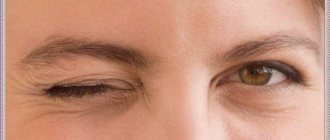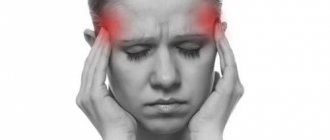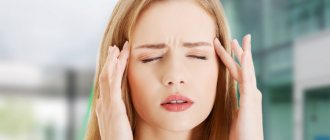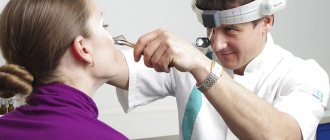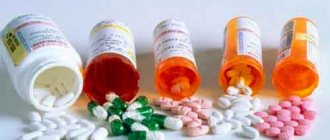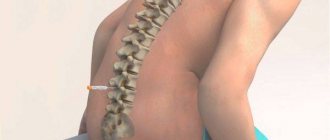Daytime sleep: benefit or harm? It would seem that most people have long ago determined their priorities in this matter. Anthropologists argue that the human body is genetically programmed to sleep twice a day, and encourage afternoon rest. Managers of large enterprises purchase “sleep capsules” for their employees so that they can sleep and recuperate at work. Young people are actively participating in the fight for the right to nap at work. And thousands of people are engaged in direct practice, happily taking a nap after lunch.
Taking a short nap during the day is called a healthy habit. However, there are situations in which it can become very harmful!
Test online:
Assess how you feel during the day to see if you have sleep disorders
Types of morning headaches
There are many causes of headaches in the morning. This symptom is the body’s reaction to receptor irritation, and therefore occurs with any disorder. Receptors are located in the skin, muscles and soft tissues, meninges, as well as on the inner wall of blood vessels. Depending on the type and mechanism of development, several types of headaches after sleep can be distinguished.
- Vascular headache – this type includes cerebral atriovenous dystonia. One of the mechanisms for the development of pain is stretching of the vascular walls due to increased blood pressure and a decrease in their tone. Pain can also occur when there is a sharp spasm of blood vessels or when there is a violation of the outflow of fluid and its accumulation in the venous bed.
- Tension headaches are caused by muscle spasms in the neck and head. They compress nerves and blood vessels, blocking blood access to the brain. This type of pain can be associated with intense physical or mental stress, stress, and nervous tension. It is also caused by chronic diseases of the cervical spine, intoxication and other factors.
- Neuralgic – associated with inflammation or compression of the trigeminal nerve. The pain is acute, throbbing, and often worsens after sleep or prolonged periods without movement. Neuralgia is characterized by increased symptoms in a certain position, during pressure on the damaged nerve.
- Liquorodynamics - the reason why the head hurts in the morning is a deterioration in the drainage of fluid from the brain. As a result, intracranial pressure increases, which leads not only to constant pain, but also to nervous disorders, problems with hearing and vision, and slow development in children.
- Headache of a psychogenic nature - occurs during stress, sleep disturbances, and nervous tension. During the examination, no pathologies are detected, and the pain is caused by increased activity of the nervous system.
Most patients experience headaches of mixed origin. When diagnosing one problem, several violations are detected simultaneously, which complement each other. It is important to determine which of them is the main one and begin treatment.
Daytime sleep: types
- 10-20 seconds – nano-sleep: this is the moment, for example, when a person in a transport slides his head onto his neighbor’s shoulder. Whether daytime sleep is beneficial in this case, researchers have not yet come to a clear conclusion;
- 2-5 minutes – micro-nap;
- 5-20 minutes - mini-nap: daytime sleep is useful in this case because it increases endurance, alertness, motor activity and the acquisition of motor skills;
- 20 minutes – restorative sleep: improves muscle memory, increases long-term memory (remembering events, facts and names) by clearing the brain of unnecessary information;
- 50-90 minutes is a real nap: improves visual perception, restores muscles and bones if the body is oversaturated with growth hormone.
Reasons why your head hurts after sleep
If you have a headache every morning, this may indicate various diseases. They may be associated with vascular or nervous pathologies, infectious and inflammatory processes, as well as other factors. Each disease requires its own treatment regimen, which is prescribed by a doctor.
Sleep apnea
Obstructive sleep apnea is a dangerous disorder that causes breathing to stop for more than 10 seconds. The disease is associated with a blockage of the oropharynx, as a result of which air cannot move through the respiratory tract. Pathology often occurs in people with certain anatomical features: a voluminous base of the tongue or palatine tonsils, a retracted lower jaw, a short and wide neck. Also at risk are people with obesity, thyroid dysfunction, diabetes and cardiovascular diseases.
Sleep apnea can be identified by characteristic signs:
- difficulty breathing or suffocation that occurs during sleep;
- frequent snoring;
- increased fatigue during the day;
- impaired concentration;
- headaches after sleep.
According to statistics, sleep apnea is more often diagnosed in men. There is also a family predisposition - the disease occurs simultaneously in several relatives. Advanced stages can lead to various heart rhythm disturbances and hypertension, which is poorly controlled with medications.
Increased blood pressure
Hypertension is a chronic increase in blood pressure. The disease is diagnosed if the systolic pressure is 140 mm. rt. Art. and higher, diastolic - more than 90 mm. rt. Art. The condition can be caused by heart disease, dysregulation of vascular tone, and slower removal of excess fluid from the body. Elderly people, patients with obesity and endocrine pathologies are at risk. Hypertension can also be triggered by long-term use of hormonal drugs.
With high blood pressure, you often get a headache after sleep. The condition also manifests itself with other characteristic symptoms:
- chronic fatigue, decreased concentration;
- deterioration of hearing and vision;
- frequent headaches - they are pressing, chronic, and often worsen with changes in atmospheric pressure;
- redness of the facial skin and mucous membranes.
If you have hypertension, it is important to monitor your blood pressure using a tonometer. The condition is dangerous because it causes stretching and weakening of arterial walls and can cause stroke and heart attack. To correct blood pressure, medications are prescribed that improve blood flow in the vessels and stimulate the removal of excess fluid.
Infectious diseases
A common reason for a headache in the morning after sleep is respiratory viral diseases. They are manifested by a sore throat, cough, rhinitis, and complications such as conjunctivitis, bronchitis and pneumonia are possible. However, in the initial stages, the only symptom may be a morning headache. If it is accompanied by general weakness and fever, other symptoms develop within a few days.
Precipitating factors that can lead to colds and flu include:
- hypothermia - the incidence rate increases in winter and in the off-season;
- the presence of any chronic diseases;
- pathologies of the immune system – patients are more susceptible to viral infection;
- elderly age.
The main cause of viral respiratory diseases is a decrease in the body's immune defense. The infection constantly reaches the mucous membranes, but immune cells stop their further reproduction. If this does not happen, the virus enters the bloodstream and causes typical signs of disease. For their treatment, antiviral and symptomatic drugs are used, and bed rest is also indicated.
Sinusitis
If you often have a headache in the morning and evening, this may indicate the development of sinusitis - inflammation of the mucous membrane of the paranasal sinuses. They are cavities formed by the bones of the skull. Inflammatory processes cause acute headache, chronic rhinitis, fever and deterioration of smell. The sinuses, which contain air in a healthy person, fill with liquid contents. The fluid may be clear or contain pus due to bacterial infection.
There are several types of sinusitis, depending on the location of the paranasal sinuses:
- sinusitis - one of the most common forms, develops with inflammation of the mucous membrane of the maxillary (maxillary) sinus;
- ethmoiditis - the inflammatory process affects the mucous membrane of the ethmoid bone cells;
- frontal sinusitis - occurs in the frontal sinus, often occurs in a complicated form due to difficult exit of sinus contents;
- sphenoiditis is a pathological process on the posterior part of the ethmoid labyrinth.
Sinusitis can occur as a complication after flu and colds, if you do not complete the full course of treatment and are not completely free from the infection. Diseases also develop after traumatic brain injuries, in which there is damage to the bones that form the paranasal sinuses. Treatment necessarily includes taking antibiotics. If conservative therapy is not effective enough, it is necessary to remove the contents of the sinuses by puncture.
Migraine
If you have a headache every morning, this could be the first sign of a migraine. It is an acute headache that develops without any organic disorders. It is believed to be associated with vascular disorders. The disease often manifests itself simultaneously in several family members, which proves a genetic predisposition.
Migraine often occurs in a chronic form and has a recurrent course. The onset of an attack can be determined by the aura - signs that appear several hours before the headache appears. These include:
- nausea, vomiting;
- cardiopalmus;
- deterioration of health, weakness, drowsiness;
- pallor of the skin and mucous membranes;
- deterioration of hearing and vision, impaired coordination of movements;
- the appearance of auditory and visual hallucinations, including tinnitus and dark circles before the eyes.
According to statistics, migraines often occur in middle-aged women. It can worsen with different frequency, and the duration of each attack ranges from several hours to 2 days. Provoking factors include changes in climatic conditions, fatigue and nervous tension, stress, hormonal imbalance and other factors. Conventional painkillers are ineffective; when diagnosing migraines, specific potent drugs are prescribed.
Other reasons
Before you start taking medications, it is important to find out why you have a headache after sleep. In most cases, occasional headaches do not indicate serious problems. They can occur even in a healthy person and be a consequence of various conditions. Pain in the morning can be caused by various reasons.
- Drinking caffeine before bed is one of the common causes of headaches in the morning. This substance activates the nervous system and stimulates the production of adrenaline into the bloodstream. If these processes occur at night, acute headaches appear the next morning.
- Alcohol abuse is a common reason for headaches in the morning after sleep. Ethyl alcohol causes poisoning and accumulates in nerve cells. It is completely eliminated from the body within 24 hours, and the state of health improves. However, drinking low-quality alcohol or large doses of ethyl alcohol leads to long-term intoxication.
- Diseases of the cervical spine also cause pain in the morning. With osteochondrosis, headaches are triggered by prolonged stay in a stationary position and deterioration of blood supply to the head.
- Violation of the medication schedule or abuse of certain drugs is another cause of morning headaches. So, it manifests itself in diabetes mellitus if you make a mistake with the dosage of medications.
- More dangerous causes that may indicate a headache are meningitis or the appearance of a tumor in the brain. In addition, this symptom may be the first manifestation of a stroke. If it is accompanied by problems with speech or coordination of movements, you must seek urgent medical help.
If you have a headache in the morning and evening, and the pain decreases during the day, this may occur after a disruption in your sleep pattern. Insomnia, alternating night and day shifts, and time zone changes lead to overwork. It is important to give your body proper rest before starting to take headache medications.
Medicines
The article shows the reasons why you get a headache after a nap. What to do if these measures do not help? In this case, medications are used. Based on their effect, they are divided into several groups:
- Non-steroidal anti-inflammatory drugs. These are the most common medications for headaches. Effectively use Nurofen, Mig, Next.
- Combined medications. They include several substances that act on different mechanisms of discomfort. Pentalgin and Nurofen plus are used.
- Antihypertensive drugs. Often pain occurs due to increased blood pressure, so doctors prescribe medications that lower it. Such medications are prescribed by doctors individually.
- For migraines. When sleeping during the day has led to migraine attacks, drugs such as Nomigren, Sumamigren, and Amigrenin can help eliminate them.
Examination methods
Diagnosis of headaches is carried out using complex techniques, tests and equipment. A simple examination is not enough to determine the cause of morning discomfort and poor health. The doctor may prescribe a set of examinations, which include:
- blood tests - a way to determine viral and bacterial infections, hormonal disorders, poisoning, vitamin imbalance and other diseases;
- Ultrasound, cardiography – techniques for examining the heart to identify defects, heart rhythm and conduction disturbances, congenital and acquired structural anomalies;
- Dopplerography - ultrasound diagnostics of blood vessels using a contrast agent, prescribed if insufficient blood supply to the brain is suspected;
- MRI of the head and neck is an informative diagnostic method for identifying neoplasms, acute and chronic diseases, and examining the cervical spine.
The Clinical Brain Institute has all the conditions for a complete examination for headaches. Modern equipment, doctors with many years of experience, the ability to obtain accurate results are our main advantages.
Treatment of morning headaches
The treatment regimen is selected individually and depends on the clinical picture, the exact diagnosis, the patient’s age and other factors. It will include several stages aimed at eliminating the root cause of morning headaches and relieving symptoms.
- Drug therapy is prescribed for pain of any origin. The regimen may include the use of painkillers and anti-inflammatory drugs, muscle relaxants, and antispasmodics. For hypertension, diuretics and drugs to correct vascular tone are additionally prescribed. Infectious diseases often require the use of antibiotics to kill pathogenic bacteria.
- Massage, physiotherapy, therapeutic exercises are a complex effective for the treatment of diseases of the cervical spine, inflammatory diseases of the nerves and blood vessels. They help improve blood circulation in the neck and head, relieve muscle spasms, and restore nerve conduction.
- Surgical intervention is used only in cases where drug treatment does not bring results. Surgery may be required to treat purulent sinusitis, remove tumors and hematomas in the neck and head.
Most patients who experience frequent morning headaches are treated at home. It is important to take medications on the schedule prescribed by your doctor, as well as follow additional instructions. If necessary, the Clinical Institute of the Brain has the opportunity to undergo treatment in a hospital setting, under 24-hour medical supervision.
ethnoscience
You can eliminate the discomfort after identifying the reason why your head hurts after a nap. How to deal with this using traditional medicine? They are perfect for those who don’t trust medications or don’t want them to become addictive. The following remedies can help relieve the symptoms of headaches:
- Citrus essential oils. If you rub your temples with citrus zest, the intensity of the pain decreases and the person feels tired.
- Strong sweet tea. Drinking this drink after sleep eliminates discomfort.
- A gruel of grated potatoes. The severity of pain is reduced if this product is applied to the temples and forehead.
- Mint decoction. The product relieves fatigue and restores blood circulation in the neck and brain vessels.
When discomfort and pain appear regularly, you should not self-medicate. This may indicate a serious illness that requires medical attention.
Prevention methods
Timely prevention will protect against the occurrence of headaches in the morning and the development of dangerous chronic diseases. At home, it is enough to follow a few simple rules to maintain good health after waking up:
- follow a diet that excludes excess salt and spices, instant coffee, and alcoholic drinks;
- give up fatty foods, strong coffee and tea, alcohol before bedtime;
- spend time outdoors, frequently ventilate the sleeping area;
- monitor your weight and regularly engage in light physical activity;
- Consult your doctor about choosing a mattress and pillow.
At the Clinical Brain Institute, you can undergo a complete diagnosis and treatment of headaches that appear in the morning after sleep. Programs are developed individually, depending on the symptoms and data from the initial examination. The center has the opportunity to get advice from experienced specialists of a narrow and broad profile who will be able to make an accurate diagnosis and prescribe the most effective treatment using only the necessary techniques. However, at home it is important to follow all instructions and follow the rules for preventing headaches.
Clinical Brain Institute Rating: 3/5 — 42 votes
Share article on social networks
